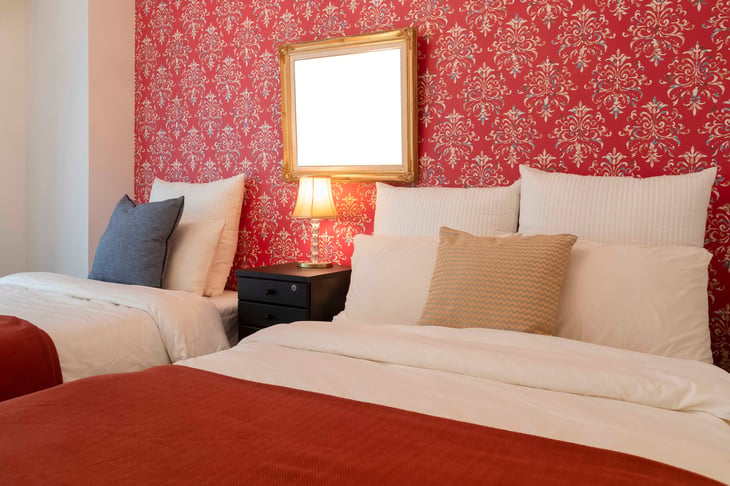
When you’ve been kicked in your sleep one too many times by a restless spouse, it may occur to you that having a bed to yourself, or an entire bedroom, could be a wonderful thing.
A handful of polls reveal that numerous Americans are acting on the thought, moving into a separate bed or bedroom while staying in the relationship.
Is this a new trend? It’s hard to say. I’d guess it’s not, since separate beds were all I saw in my childhood: My parents had separate twin beds, pulled together side by side and covered with one large bedspread. They slept this way for many decades.
A New York Times poll, conducted by the International Housewares Association, finds that 1 in 5 U.S. couples sleep in separate bedrooms. Most who do sleep separately do so every night, says the January survey of 2,200 Americans.
“I think it’s way more common than people think,” Manhattan interior designer Rodney Lawrence tells the Times.
In what follows we explore pros and cons of these arrangements. First, we consider the pros. Further along, we’ll discuss drawbacks.
1. Improved intimacy

For couples who are constantly thrown together as they fulfill their roles in the family and household, getting a break from so much proximity can reignite the sizzle, board-certified sexologist Suzannah Weiss tells Insider.
That was true for Rich Newhart, who lives with his wife, Cara Newhart, in southern New Jersey. The couple spoke with the Times. He says that he feels closer to his wife and more interested in intimacy since she moved into a guest room to get time for herself.
Cara Newhart appreciates the opportunity for both to explore individual interests after the hectic early years of parenthood.
2. Protected individuality

Upholding each individual’s uniqueness is important in a healthy relationship, licensed mental health therapist and communication coach Katie Bingner tells Insider.
Giving each member of the couple some space that’s theirs can elevate each one’s individuality.
“Having your own space can help you and your partner feel safe, free, and seen as individuals,” Bingner says.
And yet, she says, for some couples, separate beds may bring stress and pull them further apart.
3. Accommodation for different schedules
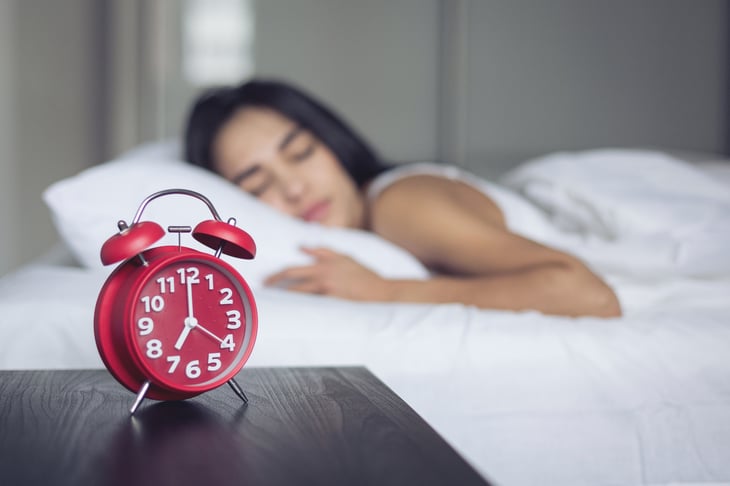
One of the main reasons couples seek separate beds is that they have conflicting sleeping and waking schedules. That’s what mattress company Naturepedic learned in its study of 800 people on the subject.
Half of the 800 report being in a healthy relationship while sleeping in separate beds. The other half were in committed relationships and routinely shared their bed with their spouse or partner.
4. Fewer sleep disruptions

There’s little question that sleeping with someone else can disrupt sleep. The Times survey found that 46% of those who’d quit sharing a bed blamed the partner’s tossing and turning or snoring for the change.
Among those who took part in Naturepedic’s survey, 44% said that sharing a bed with their significant other made them wonder if the relationship would work.
Reasons for those conclusions included the partner’s snoring (78%) and the couple’s conflicting sleep schedules (71%).
Restless leg syndrome also makes it difficult for married couples to share a bed, reports USA Today.
5. Lower stress

Sleeping separately seems likely to lower stress for some, particularly people like the group who told Naturepedic that sharing a bed made them wonder if their relationship could work.
A 2020 survey about sleep among medical students at a Saudi Arabian medical school concludes that poor sleep quality is “significantly associated” with elevated levels of stress. (The students’ academic performance wasn’t affected.)
You don’t have to be a sleep researcher to know from experience how stressful it is to function after a night of disrupted sleep.
And, as Weiss, the sexologist, says:
“Taking time apart, even just when you sleep, minimizes opportunities to get on each other’s nerves and can help maintain or reignite the spark in a relationship.”
6. Full control of bed temperature and firmness
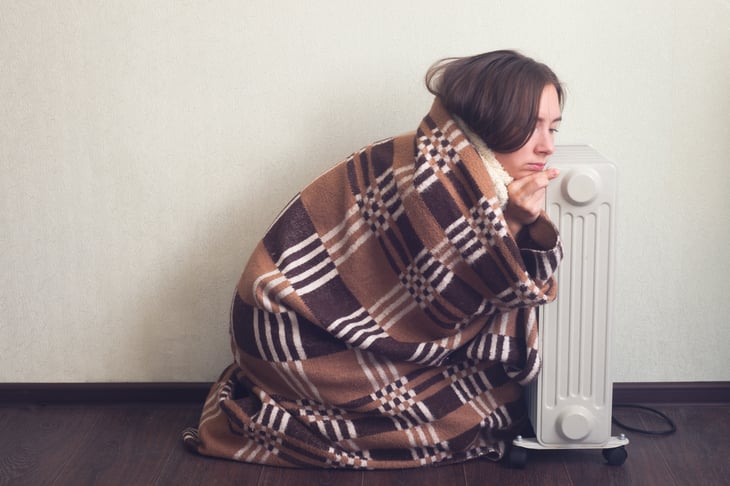
Some people who kiss their spouse good night at the bedroom door are looking for more control over the bed itself.
Among the 44% in Naturepedic’s survey who said that sharing a bed with their significant other made them wonder if the relationship could work, more than half blamed differences over sleep temperature.
Spouses who sleep alone are in charge of their mattress type, temperature and firmness, issues that mattered most to the Gen Z participants in Naturepedic’s poll.
7. More room
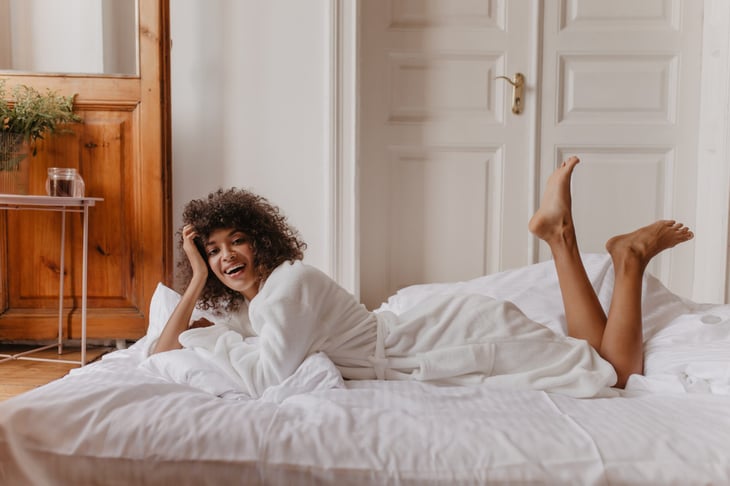
Perhaps you’ve shared a bed with someone who likes spreading out and taking up more than their share of space.
A bigger bed perhaps would solve the conflict. But some bed hogs will roam in their sleep as far as a bed’s dimensions allow.
If you’re a spouse or partner who’s pushed into a cramped corner of the bed, the thought of one’s own nighttime real estate — be it a bed of your own or an entire bedroom to yourself — can be mighty appealing.
Potential downsides

The arguments for and against separate beds are complex. Read on to learn some disadvantages.
1. Social assumptions
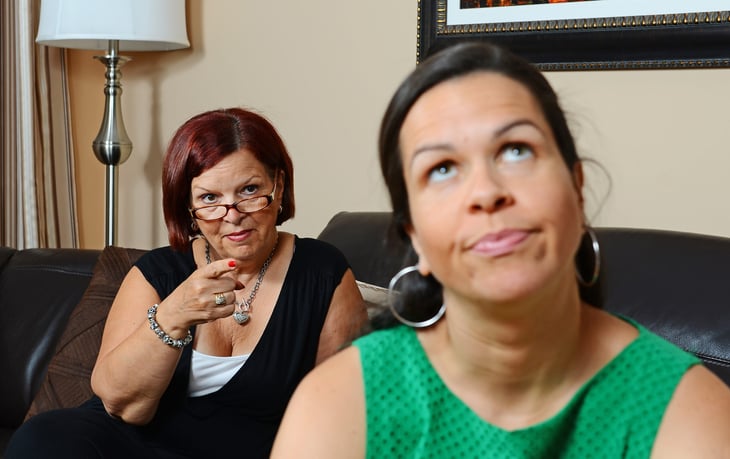
If you let it be known that you and your spouse or partner sleep in separate beds, you risk facing disapproval from friends, family and even censorious strangers.
Are your sleeping arrangements anyone’s business but your own? Certainly not. But some folks may nevertheless decide it’s a sign that your relationship is sexless or teetering on the brink of a break-up.
2. Avoidance

Sleeping separately gives an emotional gulf between two people a chance to broaden; partners can more easily detach, avoid each other and fail to resolve problems, says therapist Bingner.
Sophie Jacobi-Parisi, a New York matrimonial and family law attorney, puts it this way for USA Today:
“If you don’t have any point of contact with your spouse … it’s very easy to lose any sort of sense that you are more than just a co-parenting, working team.”
As Dr. Cheryl Fraser, a clinical psychologist and sex therapist, tells the Times:
“It’s not a big leap from healthy solitude to a little bit of distance.”
3. Less cuddling

Ironically, although separate beds can relieve stress and promote quality sleep, a loss of intimacy may result when a couple sleeps apart.
When sleeping alone, partners also lose opportunities for health-promoting holding and touching. Oxytocin, a hormone stimulated by affectionate touching and cuddling, is implicated in heart health, healthy weight, sleep regulation, improved immune function and lower blood pressure, USA Today reports.
Fraser polled 3,000 couples in long-term relationships and found that around 33% to 40% were in sexless relationships, meaning they had sex together six times or less per year. The sex that happens “naturally” in a shared bed matters for relationships, Fraser states.





Add a Comment
Our Policy: We welcome relevant and respectful comments in order to foster healthy and informative discussions. All other comments may be removed. Comments with links are automatically held for moderation.